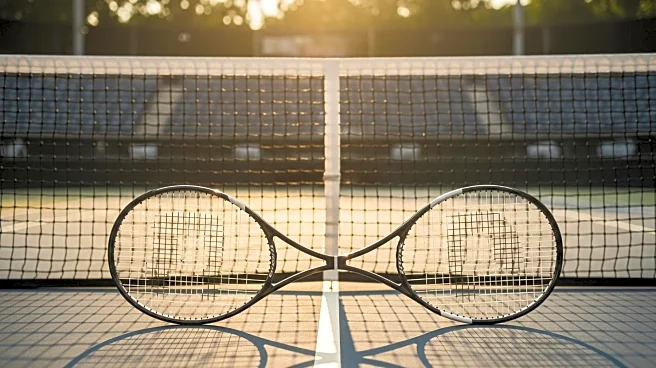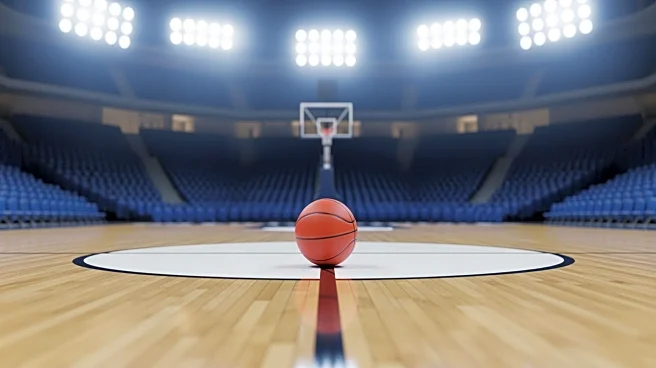What's Happening?
During the first week of the U.S. Open, the traditional post-match handshake in tennis has come under scrutiny. This ritual, which is not explicitly mentioned in the Grand Slam rule book, is a long-standing tradition in the sport, symbolizing sportsmanship. However, recent incidents have highlighted tensions between players. Notably, Jelena Ostapenko and Taylor Townsend had a verbal exchange after their match, with Ostapenko accusing Townsend of being 'uneducated' over a perceived breach of etiquette. Similarly, Stefanos Tsitsipas expressed displeasure with Daniel Altmaier's use of an underarm serve, leading to a tense handshake. These incidents underscore the emotional intensity of the sport and the challenges of maintaining decorum in competitive settings.
Why It's Important?
The significance of these incidents lies in their impact on the perception of sportsmanship in tennis. The handshake is a symbolic gesture that reflects the values of respect and civility, which are integral to the sport. When these interactions go awry, it can affect the public's view of the players involved and the sport as a whole. For the players, these moments can influence their reputations and relationships within the tennis community. Additionally, such incidents can spark discussions about the unwritten rules of tennis and how they are interpreted by different players, potentially leading to changes in how these traditions are upheld.
What's Next?
As the U.S. Open progresses, it is likely that players and officials will be more mindful of the post-match interactions. There may be increased emphasis on sportsmanship and the importance of maintaining professionalism, regardless of the match outcome. Players might also engage in discussions about the unwritten rules and how to handle disagreements on the court. The tennis community, including coaches and commentators, may advocate for clearer guidelines to prevent future conflicts and preserve the integrity of the sport.
Beyond the Headlines
These incidents highlight the cultural and personal differences that can influence player interactions. Tennis is a global sport, and players come from diverse backgrounds, which can lead to varying interpretations of sportsmanship. The emotional nature of competitive sports can also exacerbate tensions, making it crucial for players to manage their emotions effectively. This situation presents an opportunity for the tennis community to foster greater understanding and respect among players, promoting a more inclusive and harmonious environment.









